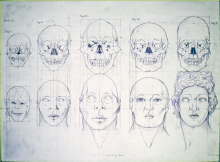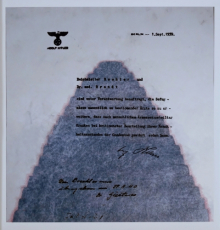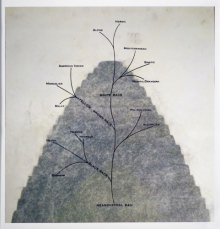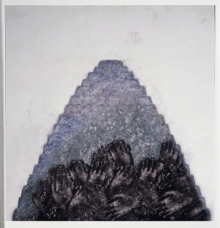Eugenics
Artist Statement
I became interested in Eugenics in 1990 while researching European genocide and American racism. Going back to the roots of Eugenical thinking in the Enlightenment was the key that focused my curiosity on how societies legitimize and institutionalize discrimination and worse. Enlightenment thinkers, humanist and often anti-slavery, prized order and ideal beauty, and sought to understand how living beings are related in a comprehensible scheme. Many believed humans came from one common ancestor, that external appearance reflected internal intellectual and moral worth, and that the laws governing the world could be discovered by scientific observation and reasoning.
The irony of the transformation of eugenical ideas from their Enlightenment roots to those of the first half of the 20th century is profound. The legitimate societal concern about protecting ourselves and others from harm grew astronomically due to the results of urbanization and industrialization. Fearful individuals in a society may or may not feel a need to rationalize hate and mistreatment, but governments, institutions and those who participate in them do. Eugenics offers scientific seeming ideas through which deviance from accepted norms become viewed as physical disorders, inferior and dangerous, and “deviants” deserving of treatment ranging from social ostracism to restriction of freedom to torture and murder.



